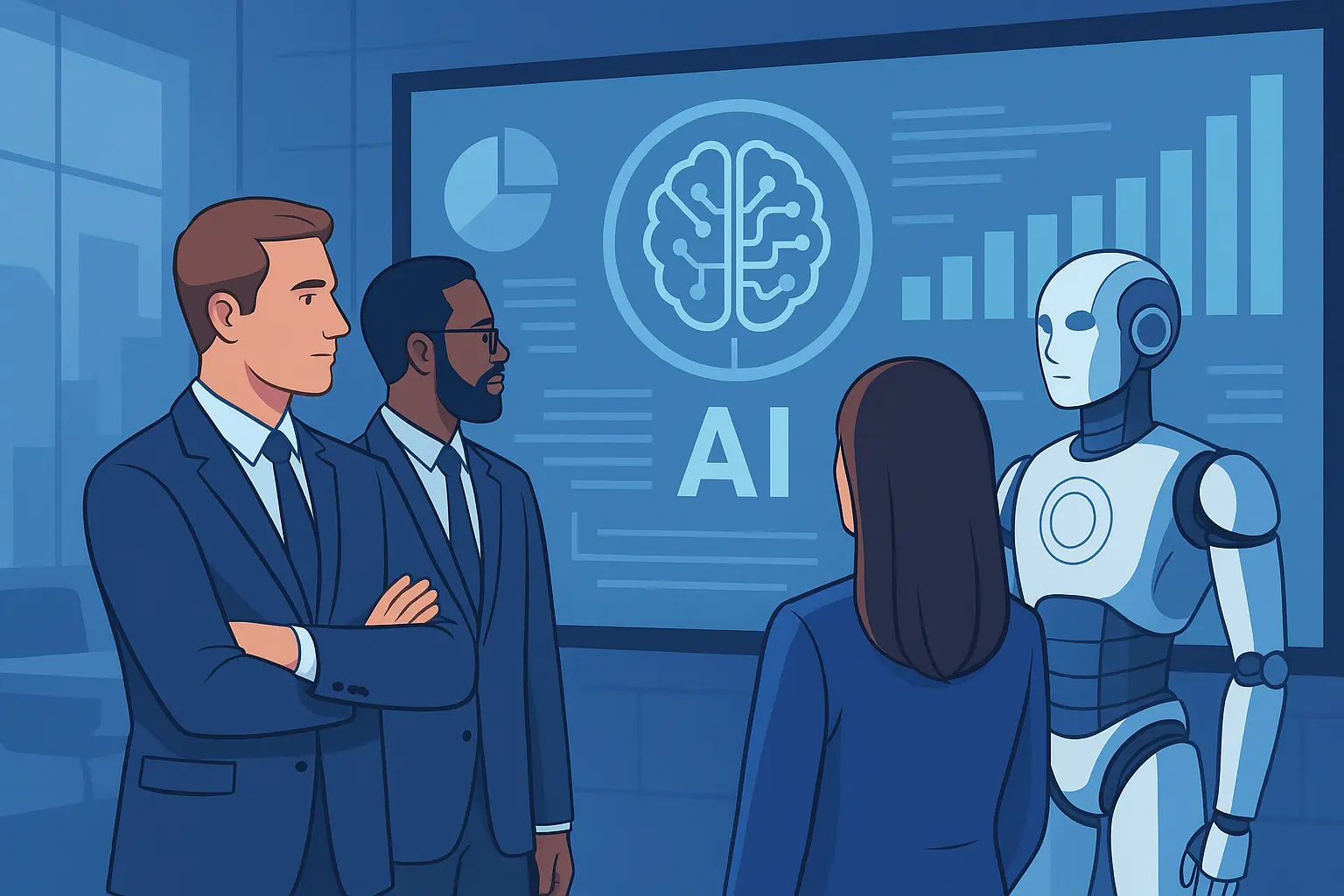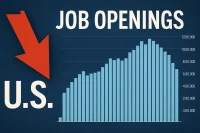Will AI Replace Your Job? Understanding the Real Threat
AI’s Impact on Workforce is no longer theoretical — it’s redefining how major corporations operate. When Amazon CEO Andy Jassy addressed the evolving role of artificial intelligence in corporate settings, the message was both clear and sobering: AI is now a workforce disruptor. With tech giants like Amazon, IBM, and Klarna already reshaping their teams through automation, professionals are understandably asking: Is my job safe?
The World Economic Forum estimates that nearly 30% of white-collar jobs could be automated by 2030. Human resources, finance, and customer service are especially vulnerable. Klarna recently replaced much of its support staff with an AI chatbot. IBM paused hiring for roles it predicts AI will soon perform. These aren’t isolated events; they’re the early signals of a systemic shift.
A. How Big Tech is Reshaping Work with AI
Amazon, Google, and Microsoft are at the forefront of AI workforce integration. Amazon has implemented machine learning to streamline warehouse operations and automate HR functions. Google uses AI in talent acquisition, while Microsoft has embedded AI in tools like Copilot to reduce administrative overhead.
Andy Jassy of Amazon remarked: “AI won’t replace all jobs, but it will reshape all of them.” Internal restructuring is already underway. At Amazon, entire departments are being reskilled to operate AI-enabled systems. Microsoft has created new hybrid roles that combine data analysis, project management, and AI oversight.
These examples highlight a trend: Realignment is replacing redundancy. The focus is shifting from who can be replaced to who can adapt.
B. Upskilling: Your Best Defense Against Obsolescence
To stay relevant, professionals need to embrace AI literacy, critical thinking, emotional intelligence, and prompt engineering. These aren’t just buzzwords—they’re survival tools.
Popular Upskilling Platforms:
- Google AI Courses – Foundations of Responsible AI
- AWS AI/ML Training – Cloud-based machine learning tools
- Coursera – AI for Everyone by Andrew Ng
Non-tech professionals can also transition into hybrid roles by combining their domain knowledge with basic AI tools. For instance, marketers are learning to use AI for campaign analysis, while teachers are using AI for grading and content customization.
C. The Ethics of Automation: Who Wins, Who Loses?
As AI accelerates, questions of equity and responsibility emerge. Automation often hits marginalized communities first, exacerbating existing economic divides.
How should companies manage layoffs ethically? Experts recommend:
- Transparent communication
- Offering reskilling options
- Providing mental health support
Governments and unions must also play a role. Legislative frameworks like the EU AI Act are a step toward responsible AI governance, ensuring that human rights aren’t compromised for productivity.
D. Economic Shifts Across Industries
AI’s economic impact is a double-edged sword. Yes, it boosts productivity and profits, but often at the cost of headcount.
Industries experiencing AI-driven growth:
- Logistics – Predictive analytics and smart routing
- Retail – Chatbots and inventory forecasting
- Healthcare – AI diagnostics and robotic surgery
However, sectors like telemarketing, data entry, and basic support roles are shrinking. The gig economy is also evolving, with platforms integrating AI to manage freelancers and optimize workflows, sometimes reducing human intervention entirely.
E. Practical Advice to Stay Ahead
Don’t wait for change to happen. Act now –
Recommended Tools:
- ChatGPT – Content creation and idea generation
- Claude – Business analytics and summarization
- Midjourney – Creative visuals and design
The best time to adapt was yesterday. The next best time is now.
🤖 Stay Ahead of the AI Curve with WhatJobs
Worried about AI reshaping your career? You’re not alone.
Explore high-growth roles in AI, Automation, Cloud Computing, and Data Science — where your future-proof skills meet real opportunity.
WhatJobs connects you with in-demand tech jobs designed for the next generation of professionals navigating the AI revolution.
👉 Browse AI and tech-driven jobs today — and lead the change.FAQ: AI’s Impact on Workforce
What jobs are most at risk due to AI?
Roles in customer service, HR, finance, and data entry are among the first being automated.
Can non-tech workers adapt to AI?
Yes. Basic training in AI tools and data literacy can help professionals in any industry stay relevant.
Are there any positive impacts of AI on jobs?
Absolutely. AI creates new roles (AI trainers, ethicists, prompt engineers) and enhances productivity in existing ones.
What are some recommended AI tools to learn?
ChatGPT, Claude, Midjourney, Tableau, and Google’s AI offerings are a great place to start.




